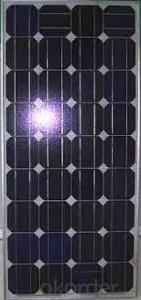Home Solar Panels: The Price You Pay for Energy Independence
It’s no secret that the world is shifting towards a more sustainable future. With climate change looming over our heads, the need for clean, renewable energy sources has never been more pressing. Among the many options available, home solar panels stand out as a popular choice for those looking to reduce their carbon footprint and gain energy independence. But what exactly does this mean for you, and what are the costs involved? Let’s dive into the world of solar energy and explore the true price of going solar at home.
The Allure of Solar Energy
Solar energy has a certain appeal that’s hard to resist. The idea of harnessing the power of the sun to light up your home, run your appliances, and reduce your reliance on fossil fuels is incredibly enticing. It’s not just about being environmentally friendly, though. There’s also the financial aspect to consider. By generating your own electricity, you can potentially save a significant amount on your energy bills. But before you start dreaming of a life powered by the sun, it’s important to understand the initial investment required.
The Initial Investment: A Look at the Costs
When it comes to installing home solar panels, the upfront cost can be quite substantial. The average cost of a solar panel system in the U.S. ranges from $15,000 to $25,000 before tax credits and rebates. This includes the panels themselves, inverters, wiring, and the labor involved in installation. It’s a significant investment, but one that can pay off in the long run.
The Long-Term Savings: A Breakdown
While the initial cost may seem daunting, the long-term savings are where the real benefits lie. Solar panels can last for 25 to 30 years, and the energy they produce is free. Over time, this can lead to substantial savings on your electricity bills. Additionally, as the technology advances and becomes more widespread, the cost of solar panels is expected to decrease, making the initial investment even more worthwhile.
The Environmental Impact: A Greener Home
Beyond the financial benefits, there’s the environmental aspect. By choosing to install solar panels, you’re making a conscious decision to reduce your carbon footprint. Solar energy is a clean, renewable resource that doesn’t emit harmful greenhouse gases. This not only helps combat climate change but also contributes to a healthier environment for future generations.
The Incentives: Making Solar More Affordable
Many governments and organizations recognize the importance of renewable energy and offer incentives to encourage its adoption. Tax credits, rebates, and grants can significantly reduce the cost of installing solar panels. In the U.S., the federal solar tax credit allows you to claim 26% of the system’s cost as a credit on your federal taxes. Some states and local utilities also offer additional incentives, making solar panels more affordable than ever.
The Maintenance: A Low-Hassle Investment
One of the perks of solar panels is their low maintenance requirements. Unlike other forms of energy production, solar panels don’t have moving parts that can wear out or break down. They simply need to be kept relatively clean and free of debris to function effectively. This means that, aside from the occasional cleaning, there’s not much you need to do to maintain your solar panels, making them a low-hassle investment.
The Challenges: What to Expect
Despite the many benefits, there are challenges to consider when going solar. One of the main concerns is the availability of sunlight. In areas with limited sun exposure, the efficiency of solar panels can be reduced. Additionally, the initial cost can be a barrier for some homeowners, especially those on a tight budget. However, with financing options and incentives available, these challenges can be overcome.
The Future of Solar Energy: A Bright Outlook
The future of solar energy looks promising. As technology continues to improve, we can expect solar panels to become even more efficient and affordable. This will make solar energy an even more attractive option for homeowners looking to save money and contribute to a greener planet.
The Personal Touch: Why I Chose Solar
On a personal note, I chose to install solar panels on my home for a variety of reasons. The desire to reduce my environmental impact was a significant factor, but so was the potential for long-term savings. I also appreciated the simplicity and low maintenance of solar panels. It’s been a rewarding experience, and I’m proud to be part of the growing community of solar homeowners.
Conclusion: The Price of Energy Independence
In conclusion, the price you pay for energy independence through home solar panels is an investment that can yield significant financial and environmental benefits. While the initial cost may be high, the long-term savings, combined with the incentives available, make solar panels an increasingly attractive option. As we move towards a more sustainable future, embracing solar energy at home is a step in the right direction. So, if you’re considering making the switch, weigh the costs and benefits carefully, and remember that you’re not just investing in your home—you’re investing in the future of our planet.

